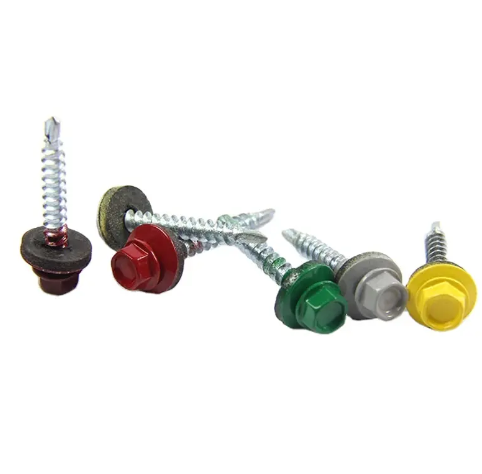Price List for Split Washers and Flat Washers Comparison
Understanding the Price Differences Between Split Washers and Flat Washers
When it comes to fastening technologies, washers play a crucial role in ensuring the integrity and stability of various assemblies. Among the wide variety of washers available, split washers and flat washers are two of the most commonly used. While they serve similar fundamental purposes, the differences in their design function lead to variations in price. This article will explore the characteristics of split washers and flat washers and delve into their respective price ranges.
What are Split Washers?
Split washers, also known as lock washers, are designed to prevent loosening under conditions of vibration and dynamic loading. Their unique split and curved shape creates tension when a bolt is tightened, which helps maintain the clamping load. This tensioning effect is vital in high-vibration environments, such as automotive and heavy machinery applications, where standard washers may fail to keep components securely fastened.
The manufacturing process for split washers often involves specific metal treatments to enhance durability and resistance to wear. Depending on the material used—such as stainless steel, carbon steel, or even specialized alloys—the price of split washers can vary significantly. Generally, their cost can range from $0.05 to $0.50 per piece, depending on size and material quality.
What are Flat Washers?
Flat washers, in contrast, are simple circular disks that serve as spacers, load distribution elements, and bearing surfaces to prevent component damage or to reduce friction. They are widely used in various applications, primarily due to their versatility and ease of use. Flat washers do not provide any locking mechanism against loosening, which means they are best suited for applications where vibration is not a significant concern.
split washer and flat washer pricelist

Flat washers are often made from materials like steel, plastic, or rubber, depending on the application. Their manufacturing process is generally less complex than that of split washers, which contributes to their affordability. On average, flat washers can cost between $0.02 and $0.30 per piece, making them an economical choice for many projects.
Comparing Price Lists
While both split washers and flat washers are relatively inexpensive components, the differences in their design and application influence their pricing structure. Split washers' more complex engineering and manufacturing push their prices higher compared to flat washers. In addition, fluctuations in raw material costs—such as the price of steel or other alloys—can also affect the pricing of these items.
For consumers or businesses looking to procure washers, it’s essential to consider the project requirements carefully. If the application involves high levels of vibration or dynamic loads, investing in split washers can prevent costly failures and enhance the assembly's longevity. Conversely, for static or less demanding applications, flat washers may be adequate and more cost-effective.
Conclusion
When reviewing a price list for split washers and flat washers, understanding the functional differences between these components is crucial. Split washers come at a higher price due to their specialized design for preventing loosening in dynamic environments. Flat washers, while simpler and cheaper, may not provide the same level of security in high-vibration applications.
Ultimately, making an informed choice based on the specific requirements of each project can lead to better performance and cost savings over time. Whether you're a DIY enthusiast or involved in industrial manufacturing, recognizing the value that each type of washer brings to the table is key to optimizing your applications effectively.
-
Top Choices for Plasterboard FixingNewsDec.26,2024
-
The Versatility of Specialty WashersNewsDec.26,2024
-
Secure Your ProjectsNewsDec.26,2024
-
Essential Screws for Chipboard Flooring ProjectsNewsDec.26,2024
-
Choosing the Right Drywall ScrewsNewsDec.26,2024
-
Black Phosphate Screws for Superior PerformanceNewsDec.26,2024
-
The Versatile Choice of Nylon Flat Washers for Your NeedsNewsDec.18,2024










